Dinkar Raval and Bala Subramaniam
The US-India Education Summit held on October 14 in Washington, DC, discussed the Indian five-point plan of involving the private sector in higher education cooperation.
Deputy Secretary of State Williams Burns declared education to be one of the pillars of strategic partnership and challenged the participants to seek new avenues for cooperation.
One of the new avenues is for both countries to focus on a broader vision of knowledge engagement that goes beyond simple education.
President Barack Obama and Indian Prime Minister Manmohan Singh's initial thrust was to create a knowledge initiative, but it has drifted to building relationships between institutions of higher education and exchange of students and faculty.
...
US-India partnership can bring poor into knowledge pool
Image: US President Barack Obama.Instead, they need to refocus on varied knowledge engagement strategies for mutual benefit and help, involving other developing democracies to address the challenges of the 21st century.
Historically, the US has followed the concept of engagement as a positive part of its foreign policy with its adversaries.
After World War II, it followed the policy of political engagement with the Soviet Union.
This eventually resulted in transforming the Soviet bloc countries into aspiring democracies.
President Richard Nixon's political engagements of China paid off by bringing China out of its isolation and into the world community.
...
US-India partnership can bring poor into knowledge pool
Image: Indian Prime Minister Manmohan Singh.At the end of the 20th century, economic engagement became the policy focus to promote market economic model, after the Soviet economic model collapsed.
Although the US engagement strategies paid off in mitigating many global challenges, the real strength of the US as a nation that cherishes values of individual freedom, choice and openness did not catch world's imagination.
The political and economic engagement strategies, though successful, were not effective in transmitting the real image of America to the masses.
A possible reason is that the benefits of these engagements reached only the powerful and elitists and not the average person.
The average person remained unaware of the real America.
...
US-India partnership can bring poor into knowledge pool
Image: Human capital pool is shrinking.For example, its economic engagement strategy encouraged globalization of the markets, which benefitted multinationals, but not the billions of poor at the 'bottom of the pyramid.'
It is time for the US to reposition its foreign policy to be consistent with its cherished core values.
The major global challenges of the 21st century are the widening gap between the rich and poor and shortage of skilled and knowledgeable human resources.
This human capital pool is shrinking. There is an increasing flow of human capital from poor to rich countries leaving an acute void in the former.
...
US-India partnership can bring poor into knowledge pool
Image: Competition for skilled human resources is increasing.Competition for skilled human resources is increasing as Europe, Australia, Canada, the United Arab Emirates and other countries enter the market for this talent.
The need to expand the global pool of human capital is critical.
The US has the opportunity to bring the global poor into the human talent pool that is consistent with its cherished values.
The 21st century is poised to be knowledge-driven.
President Obama stressed that 'Knowledge is the currency of the future,' in his speech before the US-India Business Council in Mumbai.
The quality and stock of knowledge is going to be a real engine to spur economic growth.
...
US-India partnership can bring poor into knowledge pool
Image: Strength of America is its Core Knowledge Infrastructure.It is the source of innovations and the backbone of market competitiveness.
The strength of America is its Core Knowledge Infrastructure, which is the bedrock of a nation's economy and prosperity.
Our research indicates that the US CKI is the real driver of its long lasting economic prosperity despite some anomalies.
This infrastructure consists of several interrelated components ranging from libraries, research labs, consulting and training institutes, book clubs, publishers, and broadband connectivity, as well as academic, professional, and accrediting organizations.
They all serve to create, disseminate, impart, and evaluate the quality of knowledge.
...
US-India partnership can bring poor into knowledge pool
Image: The strength of the US CKI has been rarely recognized or leveraged.They prepare and supply skilled and knowledgeable human resources to its dynamic economy.
Its immigration system, with a variety of visa provisions, also undergirds this infrastructure by importing skilled and trained professionals from abroad to overcome shortages.
The strength of the US CKI has been rarely recognized or leveraged.
It is suggested that the US can share the benefits of its CKI by designing the strategy of knowledge engagement with India and other developing countries.
The Knowledge Engagement Strategy is to employ US knowledge instruments, system know-how, and accumulated experience of the relationship of intertwined and interconnected knowledge infrastructure elements as incentives to build relationships with other nations.
...
US-India partnership can bring poor into knowledge pool
Image: Poor can become productive human resources, innovators and consumers.This strategy can supplement the economic engagement strategy and/or be independently used as a part of the statecraft.
This strategy is going to become critical in the 21st century as the knowledge economy progresses and global competition for skilled and knowledgeable human capital intensifies.
The US has the opportunity to initiate this strategy as a part of its global policy consistent with the 21st knowledge economy.
It has a first mover advantage to bring the global poor into the knowledge pool.
By enhancing their knowledge and skills, they can become productive human resources, innovators and consumers.
...
US-India partnership can bring poor into knowledge pool
Image: Harvard professor Kasturi Rangan.It will open the door for them to mainstream in the economy and be beneficiaries of prosperity.
It will help alleviate global poverty and serve a humanitarian goal.
Harvard professor Kasturi Rangan calls this an alignment of goals of poverty reduction and economic profit.
India offers an excellent opportunity for initiating the knowledge engagement strategy and partnership.
India is the world's largest democracy; it shares democratic values with the US and is a market economy.
It has a sizable English-speaking population. It recognizes English as a global language of business.
The demand for English language training in India is skyrocketing due to the success of its Diaspora in Western countries and recent success of its knowledge driven industries.
...
US-India partnership can bring poor into knowledge pool
Image: A view of Indian Institute of Management in Ahmedabad.This will expand the pool of trainable human capital.
Some elements of India's knowledge infrastructure like the Indian Institutes of Technology, Indian Institutes of Management, and a few leading universities are reasonably well developed and have a proven track record.
Individuals trained and prepared by them have excelled on the global screen and particularly in the US economy.
For example, many citizens of Indian origin are members of tenured faculty, deans of schools of business, engineering, sciences and liberal arts.
Major hospitals and medical schools have Indian faculty and doctors.
Indian students form a significant part of the cadre of graduate students in engineering, science and research in the US.
...
US-India partnership can bring poor into knowledge pool
Image: US Secretary of State Hillary Clinton.However other branches like think tanks, publishing houses, research labs and training institutes need to be developed and modernized.
India has more than 50 per cent of its population under the age of 35 and they have the potential to be leading scientists, engineers, technologists, researchers, and academics, provided its knowledge sector is expanded to include other branches to offer them opportunities.
They will alleviate the global shortage of talent. Secretary of State Hillary Clinton recognized this potential in her speech before the USIBC, when she said: 'We should bring together the best of our technological and scientific brains to encourage breakthroughs in both science and technologies.'
...
US-India partnership can bring poor into knowledge pool
Image: This will serve to meet the fundamental values of the US.She further highlighted the need to share knowledge and best practices to improve human development at home and abroad.
Thus, there is no better time than now for the US to initiate a knowledge engagement partnership with India.
It will offer a large Indian market for US suppliers of knowledge tools and services.
It will give the US an opportunity to bring a multitude of poor and meritorious young people into the knowledge fold.
This will serve to meet the fundamental values of the US.
If the knowledge partnership with India becomes successful, it can be a model for the US to build similar partnerships with other nations and bring the billions at the 'bottom of the pyramid' into the global mainstream.
Dinker Raval and Bala Subramanian are retired professors at Morgan State University and recipients of the Iva Jones Medallion

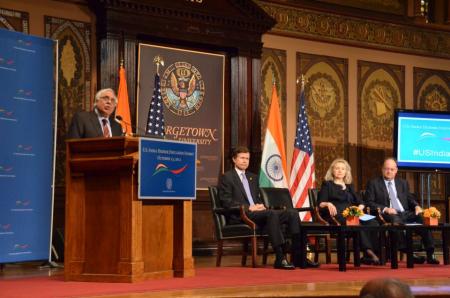
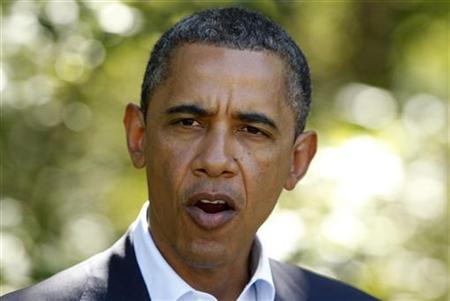
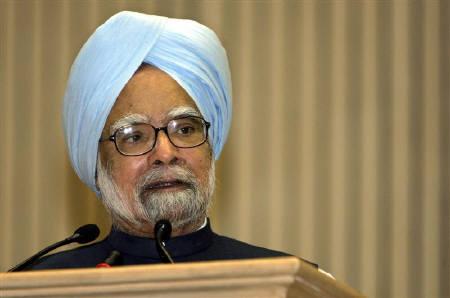





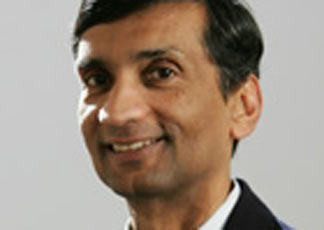
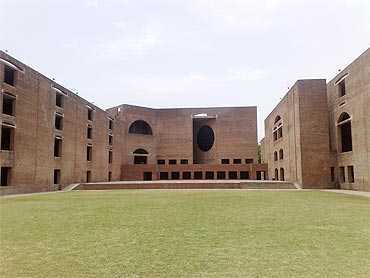
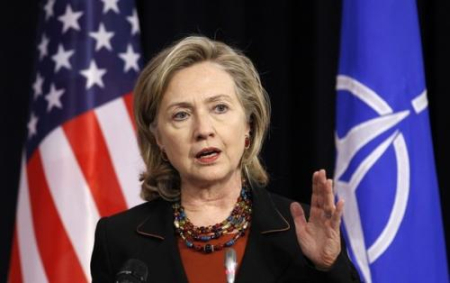

article